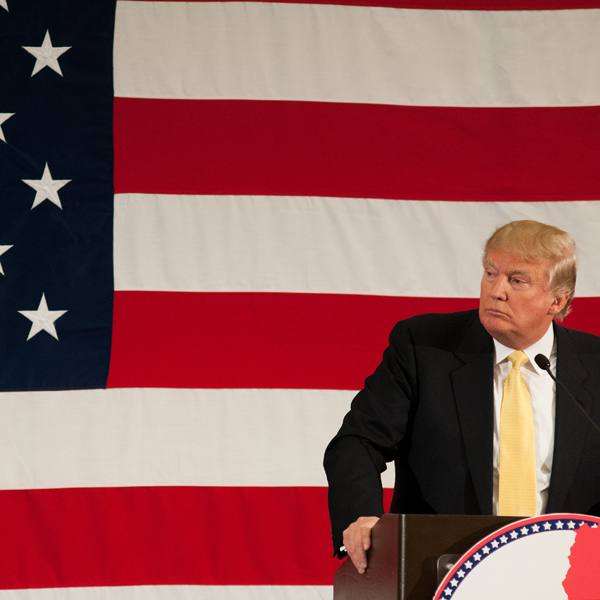TBD Law conference goes beyond basics

Photo of Victor Li by Saverio Truglia
As someone who has been to a lot of legal conferences, I can safely say that TBD Law is nothing like the others I’ve attended or covered.
The invitation-only conference, which took place Feb. 26-28 at the Filament conference center in St. Louis, resembled more of a retreat and team-building enterprise than the usual “panels full of pundits” approach. Instead, the 50 or so attendees representing solo practices, small firms, legal service providers, technology companies and businesses were identified as tech-savvy innovators who had long since moved beyond the initial dilemma of whether to challenge the legal profession’s status quo.
With a certain level of sophistication and expertise assumed, attendees instead focused on sharing parts of themselves and their professions for the common goal of improving the legal industry. There were breakout sessions, free exchanges of advice and even mental exercises.
One involved “remembering the future.” Participants were asked to pretend it was 2027 and reveal the steps they took to prepare for the big changes that happened in the legal industry during the previous decade.
“We’re not going to focus on whether this is a profession or business,” said Sam Glover, editor-in-chief of the website Lawyerist. “Let’s just assume, for the sake of this conference, that it’s both.”
Glover is a co-founder of the conference with Lawyerist CEO Aaron Street and Matt Homann, founder of Filament.
Homann echoed Glover’s sentiments. “Let’s get better at business because everything else flows from that,” Homann said. “If we don’t make enough money to keep the lights on, then we can’t help anyone. If we make more money, we can serve more clients.”
first come, first served
The focus on business and service dominated one of the main sessions of TBD Law. During the hackathon and live design event, attendees were given free rein to come up with projects that would serve the public, increase access to justice or improve the legal profession.
Two projects came about in anticipation of President Donald Trump’s modified executive order banning travel to the United States from certain Muslim-majority countries. One of them—Justice in a Box—was created to provide volunteers with the information and resources necessary to help immigrants inside detention centers. Street from Lawyerist; Fastcase CEO Ed Walters; Jeffrey Asjes, a research and reference attorney at Fastcase; and Dan Lear, director of industry relations at Avvo, headed the project.
“There are many long-term efforts to help immigrants on the path to citizenship. This is a proactive, short-term effort to help AILA [the American Immigration Lawyers Association] and others take action ahead,” Walters said. “The only way to help detainees is for lawyers to show up in person to help—and many of them won’t be immigration lawyers. So we decided to put together materials for them to use.”
Justice in a Box includes forms and questionnaires that can be used to generate documents for clients subject to summary removal proceedings or orders of removal.
Several conference attendees also came up with a tool to help detainees fill out forms and generate documents so that their U.S. citizen children would be taken care of.
That team included Damien Riehl, a lawyer and technologist in Minneapolis; Inti Martínez-Alemán, a civil and business lawyer at the Ceiba Forte Law Firm in St. Paul, Minnesota; Jennifer Reynolds, a family lawyer at the Fresh Legal firm in Ottawa, Ontario; Greg Siskind, an immigration lawyer at Siskind Susser in Memphis, Tennessee; and Stephen B. Keogh, a Norwalk, Connecticut, elder law and probate attorney at Keogh, Burkhart & Vetter.
Another project included a web-based TV series with three of the conference attendees in a Hell’s Kitchen-style reality show. Mary Juetten of Evolve Law and Traklight, Alma Asay of Allegory Law and Allen Rodriguez of One400 went to a law office and pointed out the ways they could use technology to improve the practice.
Llamazon, an online marketplace (complete with a logo featuring a llama) proposed to collect all the “freemium” legal services available from lawyers or law firms.
“Consumers want a one-stop shop,” said Patrick Palace, owner of Palace Law in University Place, Washington, just outside Tacoma. “Lawyers would be able to direct people to their websites” from the marketplace. Palace created Llamazon with Chad Burton, CEO at CuroLegal, and solo practitioners Jacob Levine and Mindy Yocum, both from Columbus, Ohio.
The challenge with events such as TBD Law is to see how much follow-up there is on the proposed projects (which were all completed within a few hours during dinner and cocktails). Homann addressed this in his closing remarks.
“Too many conferences don’t have a built-in community,” Homann said. “For us, we have a bunch of co-conspirators in this room. I’d love for you all to think about how to keep these conversations going as you look for ways to continue improving your communities.”
Correction
The Law Scribbler article “1 Step Beyond: TBD Law’s 2nd conference again skips past the basics,” May, should have identified Stephen B. Keogh as a member of the team that created a tool to help detainees, not Steven Weigler. Keogh is a Norwalk, Connecticut, elder law and probate attorney.The Journal regrets the error.
Law Scribbler Online: Victor Li shares his reporter’s notebook at ABAJournal.com/lawbythenumbers and on Twitter at @LawScribbler.
This article originally appeared in the May 2017 issue of the ABA Journal with this headline: 1 Step Beyond: TBD Law’s 2nd conference again skips past the basics.
Write a letter to the editor, share a story tip or update, or report an error.


